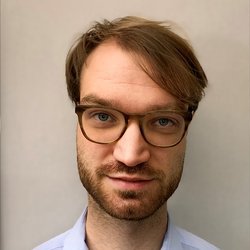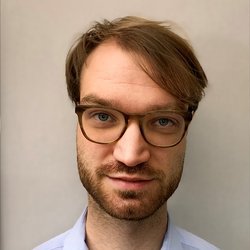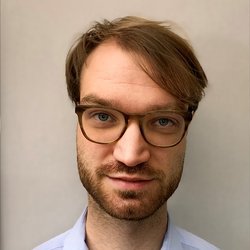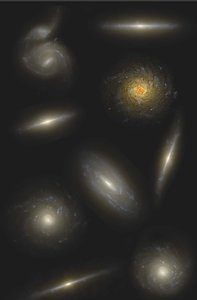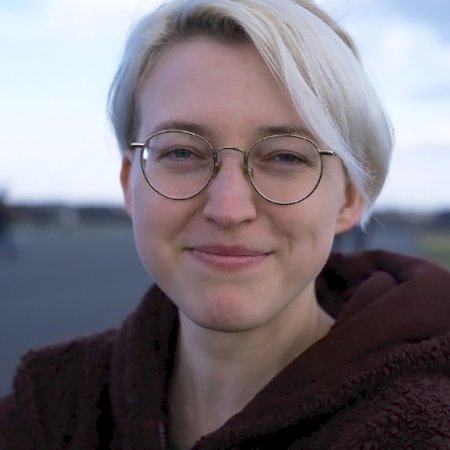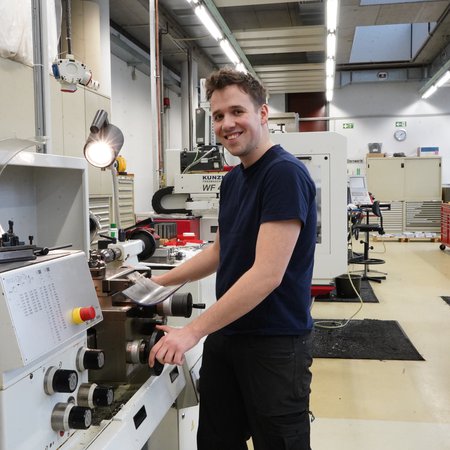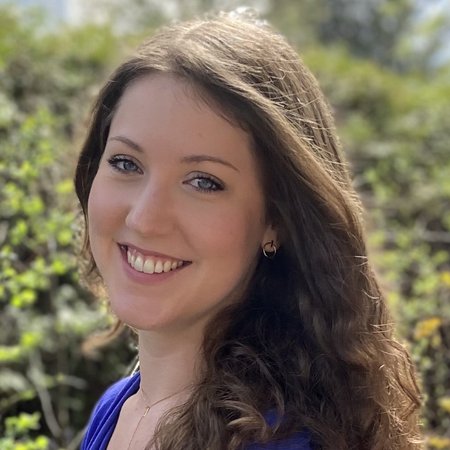Carl Zeiss Foundation research group grant for Dr Tobias Buck
The method of machine learning is becoming increasingly important for large parts of social life, industry and technology, but also for the natural sciences. The field of astrophysics with its immense amounts of data has the potential to contribute great advances to the development of machine learning. Tobias Buck will now start a junior research group at Heidelberg University dedicated to the topic of machine learning in astrophysics. The research project is funded by the Carl Zeiss Foundation with about 1.5 million euros over six years.
Astrophysical phenomena such as galaxy formation are by nature highly complex, interdisciplinary problems that are usually handled with numerical models on high-performance computers. The computational resources required limit the amount of knowledge that can be gained, and there is an urgent need for numerical models. With the new research group, consisting of one postdoctoral position and two positions for PhD students, Tobias Buck wants to explore how modern machine learning (ML) techniques can be integrated into the scientific thinking process to gain new insights into physical processes of galaxy formation. “I am very glad to receive the trust and funding from the Carl Zeiss Foundation, which gives me the scientific freedom and the means to pursue my own exciting research questions with my own team. The synthesis of machine learning and natural sciences will have an impact on many different disciplines, far beyond astrophysics,” says Tobias Buck.
This will be achieved by combining the flexibility of machine learning tools with the predictability of classical numerical simulations, developing innovative, interpretable ML simulation algorithms, and computing new, statistically significant data sets on model galaxies. The research group is also expected to develop new methods for the analysis of future, high-dimensional telescope data, which would accelerate the processing and thus the knowledge gain from observational data. Professor Christoph Pfrommer, head of the Cosmology and High-Energy Astrophysics section at the Leibniz Institute for Astrophysics Potsdam (AIP), emphasizes: “This is a great success for Tobias Buck, who was able to secure this prestigious award with his innovative research approach and his successful research at the AIP.”
Tobias Buck was a scientist in the Cosmology and High-Energy Astrophysics section at the AIP from 2018 to 2022, conducting research in theoretical astrophysics on galaxy formation. Before joining AIP as a postdoctoral researcher, he studied at Heidelberg University, where he completed his PhD in 2018.
With the CZS Nexus programme, the Carl Zeiss Foundation offers young researchers the opportunity to establish their own interdisciplinary research group and implement projects at the interfaces between different STEM disciplines. Five young scientists were selected from more than seventy applications in a multi-stage selection process as part of a new funding programme. Tobias Buck's research project, entitled “Enhancing computational astrophysics with interpretable machine learning,” is based at Heidelberg University.
Further information
Heidelberg University press release
https://www.uni-heidelberg.de/en/newsroom/new-research-group-in-computational-astrophysics
Carl Zeiss Foundation news
https://www.carl-zeiss-stiftung.de/en/service/news/news-detail/five-young-scientists-receive-funding
The method of machine learning is becoming increasingly important for large parts of social life, industry and technology, but also for the natural sciences. The field of astrophysics with its immense amounts of data has the potential to contribute great advances to the development of machine learning. Tobias Buck will now start a junior research group at Heidelberg University dedicated to the topic of machine learning in astrophysics. The research project is funded by the Carl Zeiss Foundation with about 1.5 million euros over six years.
Astrophysical phenomena such as galaxy formation are by nature highly complex, interdisciplinary problems that are usually handled with numerical models on high-performance computers. The computational resources required limit the amount of knowledge that can be gained, and there is an urgent need for numerical models. With the new research group, consisting of one postdoctoral position and two positions for PhD students, Tobias Buck wants to explore how modern machine learning (ML) techniques can be integrated into the scientific thinking process to gain new insights into physical processes of galaxy formation. “I am very glad to receive the trust and funding from the Carl Zeiss Foundation, which gives me the scientific freedom and the means to pursue my own exciting research questions with my own team. The synthesis of machine learning and natural sciences will have an impact on many different disciplines, far beyond astrophysics,” says Tobias Buck.
This will be achieved by combining the flexibility of machine learning tools with the predictability of classical numerical simulations, developing innovative, interpretable ML simulation algorithms, and computing new, statistically significant data sets on model galaxies. The research group is also expected to develop new methods for the analysis of future, high-dimensional telescope data, which would accelerate the processing and thus the knowledge gain from observational data. Professor Christoph Pfrommer, head of the Cosmology and High-Energy Astrophysics section at the Leibniz Institute for Astrophysics Potsdam (AIP), emphasizes: “This is a great success for Tobias Buck, who was able to secure this prestigious award with his innovative research approach and his successful research at the AIP.”
Tobias Buck was a scientist in the Cosmology and High-Energy Astrophysics section at the AIP from 2018 to 2022, conducting research in theoretical astrophysics on galaxy formation. Before joining AIP as a postdoctoral researcher, he studied at Heidelberg University, where he completed his PhD in 2018.
With the CZS Nexus programme, the Carl Zeiss Foundation offers young researchers the opportunity to establish their own interdisciplinary research group and implement projects at the interfaces between different STEM disciplines. Five young scientists were selected from more than seventy applications in a multi-stage selection process as part of a new funding programme. Tobias Buck's research project, entitled “Enhancing computational astrophysics with interpretable machine learning,” is based at Heidelberg University.
Further information
Heidelberg University press release
https://www.uni-heidelberg.de/en/newsroom/new-research-group-in-computational-astrophysics
Carl Zeiss Foundation news
https://www.carl-zeiss-stiftung.de/en/service/news/news-detail/five-young-scientists-receive-funding
Images
Dr Tobias Buck.
Collage of simulated Milky Way galaxies.
